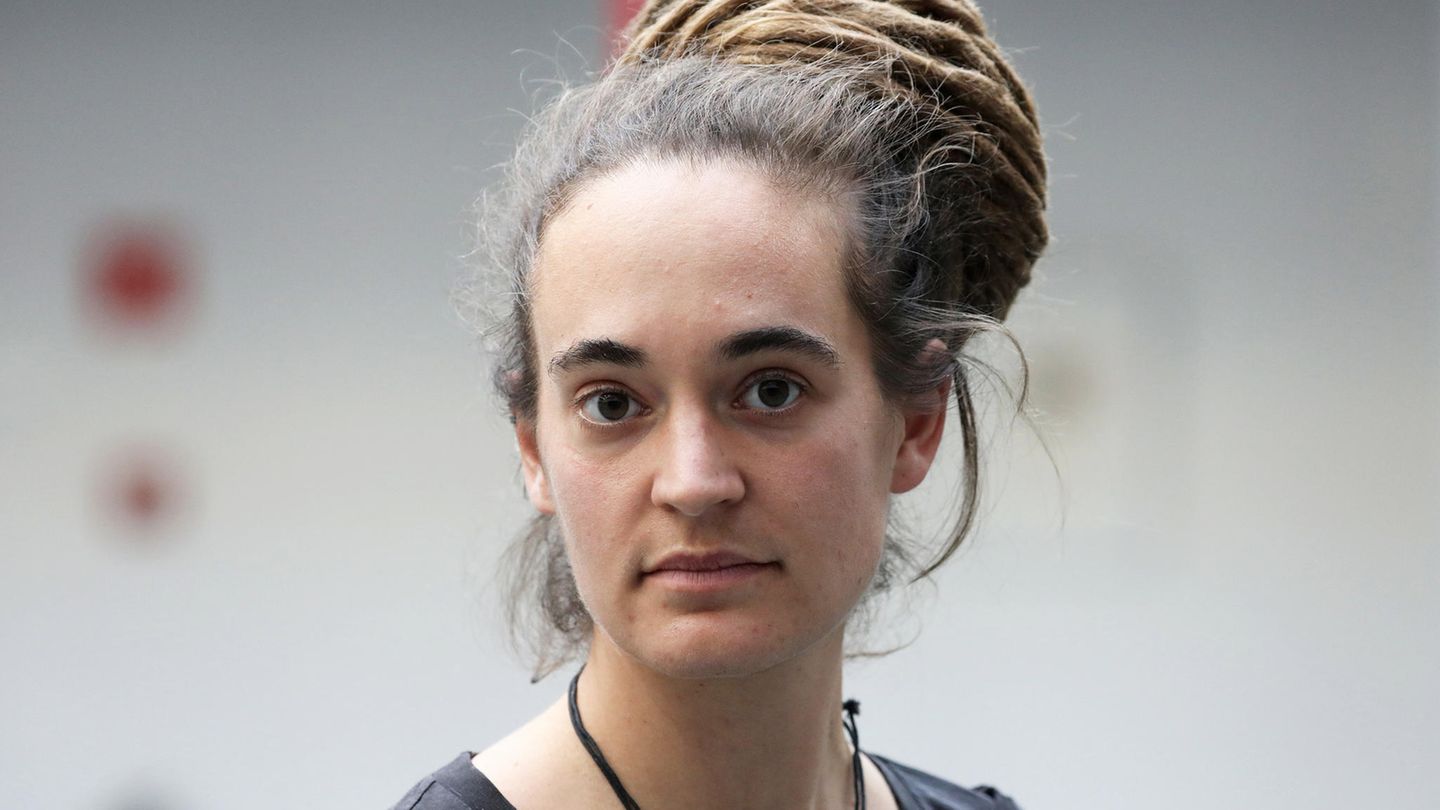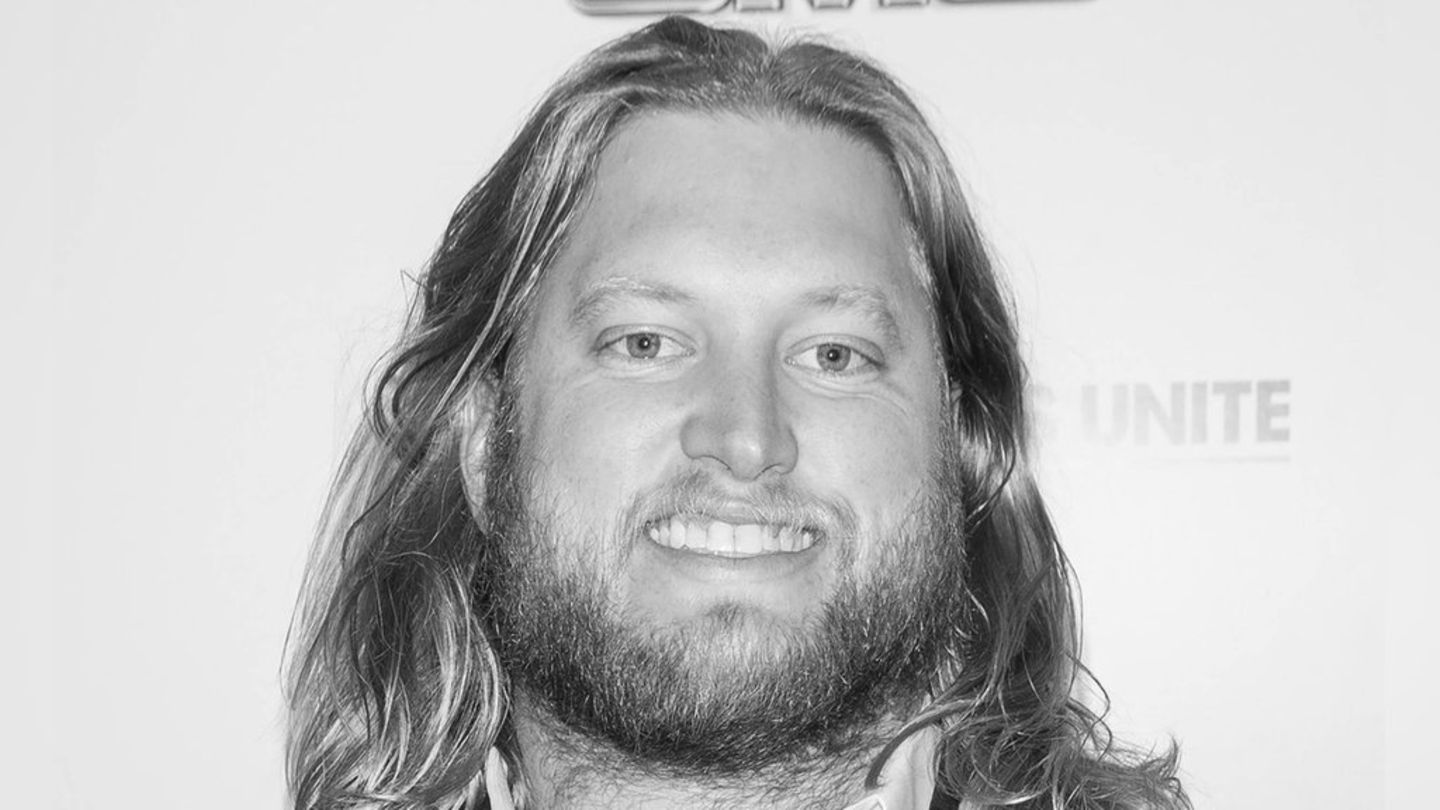She became known as a fearless sea rescuer, now the refugee activist Carola Rackete is to campaign for “Die Linke” in the European elections. Can she breathe new life into the divided party?
It is a candidacy with a certain bang effect – and should be understood as a signal: The climate and refugee activist Carola Rackete is to run as the top candidate of the left in the European elections next year.
The party chairmen Janine Wissler and Martin Schirdewan reported on Monday that Rackete should be placed second on the list of candidates – and therefore have a good chance of entering the EU Parliament. However, the top left list proposals still have to be approved by a party conference at the end of November.
The move is remarkable in many ways. Co-boss Schirdewan – who is to take first place on the list of candidates – has brought Rackete, a non-partisan top candidate, to his side. The 35-year-old was known as a sea rescuer, but is currently mainly active in the climate movement. Your candidacy could make the Left Party more compatible in relevant circles. In any case, co-boss Wissler made no secret of her calculations: “We want to make it clear today: The left is open to committed, active people from social movements and civil society,” she said at the presentation.
Consequently, Rackete’s line-up should also be associated with the message of wanting to differentiate oneself from other circles. Namely: From Sahra Wagenknecht, who had repeatedly criticized her party’s liberal refugee and climate policy – and could compete with the left with the possible founding of her own party.
Carola Rackete: “I share exactly this analysis with the Left Party”
Rackete became known as the captain of the “Sea Watch 3”, a sea rescue ship, which she steered into the port of Lampedusa in June 2019 after weeks of waiting and despite a ban after rescuing 53 people off the coast of Libya from the Mediterranean Sea. The interior minister at the time, Matteo Salvini, wanted to have her locked up, calling her a “rich and spoiled German communist.” Rackete was placed under house arrest for a short time, and criminal proceedings against her were dropped in 2021.
After that, it became quieter about “The prudent resister” (“Die Zeit”) and “The quiet rebel” (“Der Spiegel”), who had sparked a debate about European refugee policy with their rescue operation, but by no means quiet. The nature conservation ecologist has repeatedly spoken up in guest articles and interviews – and has already hinted at political ambitions.
The non-party activist called for the 2021 federal election quite frankly: “The left vote for climate justice”. She spelled out why in a guest article for the left-leaning daily newspaper “Neues Deutschland”. The two central sentences: “Of course, environmental and climate protection are the classic core issues of the Greens. However, the ecological crises (…) are the result of unequal social power relations.” And only the Left Party, according to the subtext, understands social justice as the core of environmental and climate protection.
Last March, she indicated which political projects Rackete, who sees herself as part of the “climate justice movement”, could devote herself to: In a conversation with the “taz” she expressed regret that the climate movement – also meant “Fridays for Future” and “The last generation” – would achieve too little. “We should be able to generate more participation again,” said Rackete. “But for that we need a broader social anchoring.” She repeatedly combined the fight for the climate with the fight for justice. “Interfaces” would have to be found where “climate protection and social issues” fit together. “If we support specific socio-ecological projects, we can motivate more people to take part.”
Should Rackete be nominated as a candidate for the Left Party in November, she would – as of now – have a good chance of moving into parliament with co-leader Schirdewan. The Left Party is currently represented by five MEPs in the EU Parliament (including Schirdewan). In the last European elections in 2019, they landed at 5.5 percent, in nationwide polls the left currently ranges between 4 and 5 percent. The first two places on the list are therefore considered promising: in the European elections, there is a 3.5 percent hurdle to get into parliament.
At Monday’s appearance, Rackete explained her motives for running for a place on the Left Party’s list. The ecological crises could only be solved if socially just conditions were created. “I share exactly this analysis with the Left Party,” she said. As an activist, she has noticed that there is a lack of “strong support for the parliamentary left”, for example in networking in institutions or in order to generate media attention. She wants to change that.
However, an important basis for their decision was also that the party leadership wanted to use their “Plan 2025” to clarify the directional dispute in the Left Party and were beginning to reposition themselves for the upcoming federal elections. Now is the chance for a “clarifying process,” said Rackete.
The strategy paper that Wissing and Schirdewan presented in mid-June is intended to help the struggling Left Party to make a comeback. The plan comprises eleven points – for example a stronger focus on social and climate policy – and can also be read as a clear distinction from Wagenknecht. Already in point 1 it says: “A clear commitment to the left is a prerequisite for the comeback.” Wagenknecht had recently demonstratively avoided that.
Unlike racket. On Twitter that the “social-ecological disaster” from parliament alone cannot be remedied – but not without a “stable left-wing party” either. “That’s why we have to make Die Linke #TogetherNew now.”
Source: Stern
I have been working in the news industry for over 6 years, first as a reporter and now as an editor. I have covered politics extensively, and my work has appeared in major newspapers and online news outlets around the world. In addition to my writing, I also contribute regularly to 24 Hours World.




